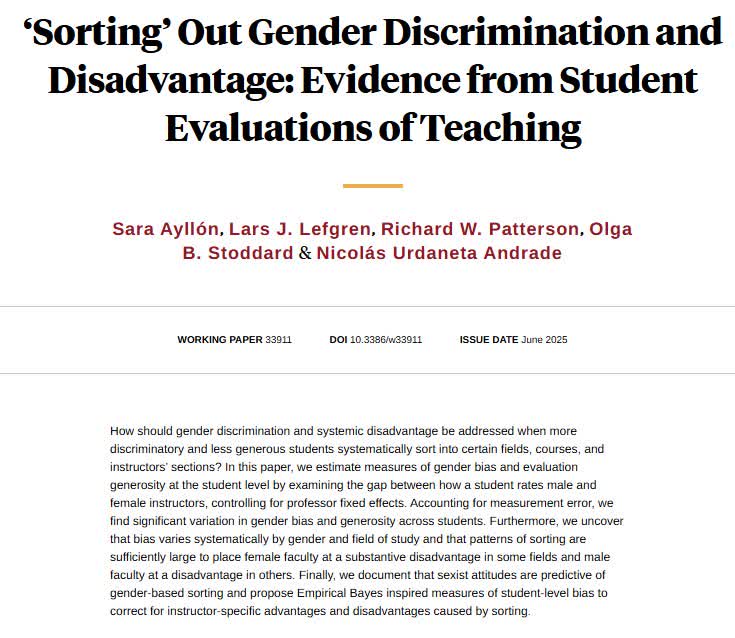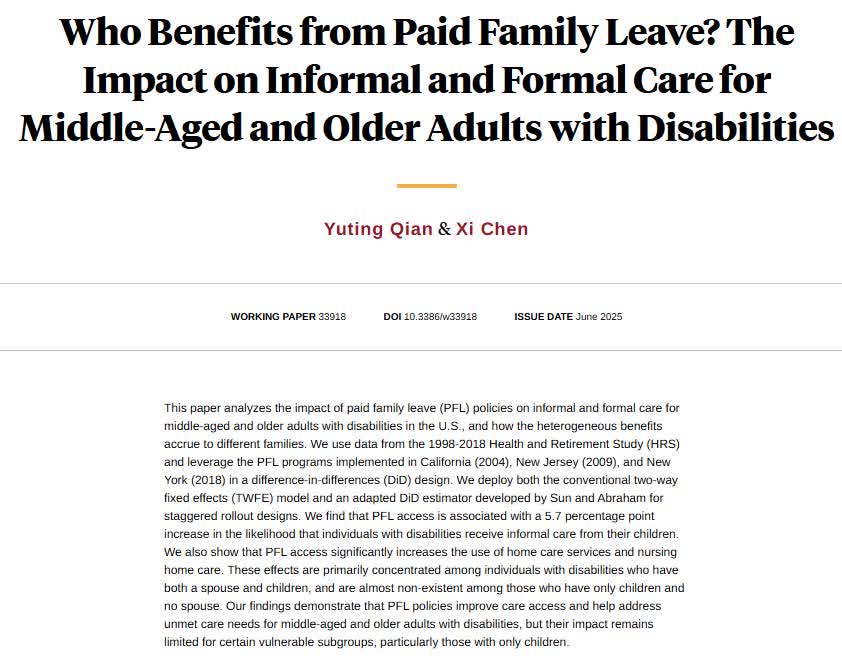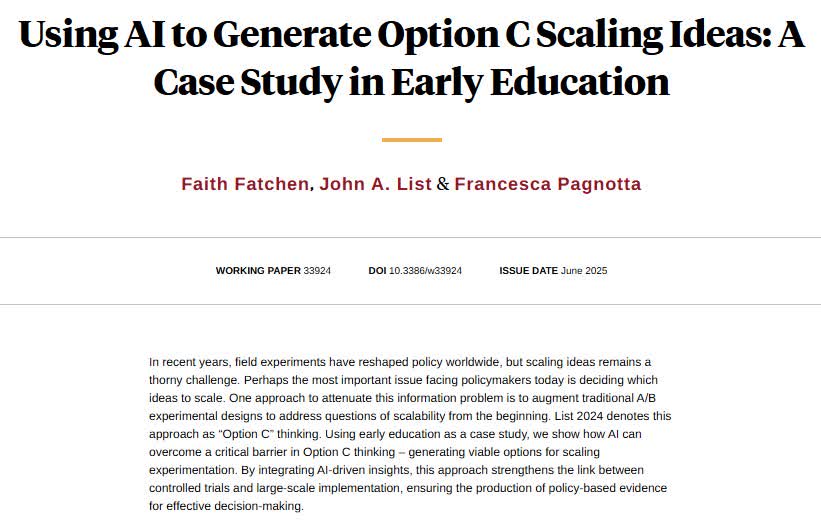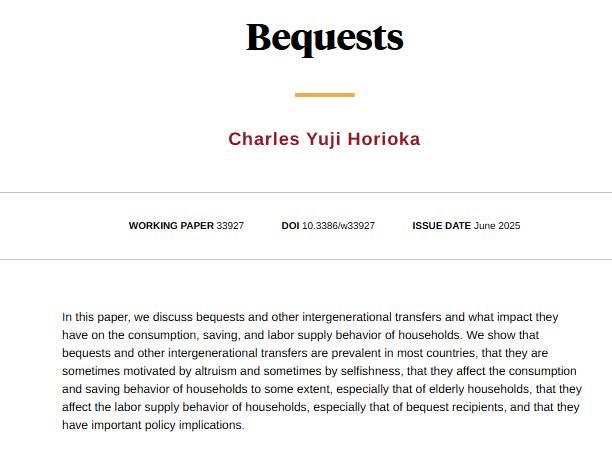
NBER
@nberpubs
The National Bureau of Economic Research is dedicated to conducting and disseminating nonpartisan economic research.
ID: 41821987
http://www.nber.org 22-05-2009 14:30:37
20,20K Tweet
167,167K Followers
245 Following

Examining how GDPR affected transatlantic venture investment using data from 2014 to 2019, from Jian Jia, Ginger Zhe Jin, Mario Leccese, and Liad Wagman nber.org/papers/w33909


On-the-job search leads to overvaluation of jobs, especially at the top of the job ladder, resulting in excess vacancy creation in the canonical search and matching model, from Masao Fukui and Toshihiko Mukoyama nber.org/papers/w33910


A study of how gender discrimination and systemic disadvantage could be addressed when students systematically sort into certain fields, courses, and instructors' sections, from Sara Ayllón, Lars J. Lefgren, Rich Patterson, @olgastoddard, and Nicolás Urdaneta Andrade



Wildfires increase hospitalizations for mental health through multiple pathways in addition to air pollution, including evacuations, direct economic costs, and climate anxiety, from Princeton CHW and Soodeh Saberian nber.org/papers/w33912


Despite the attention childlessness has received, it explains only a small fraction of the recent decline in fertility in populations in the Americas, Europe, East Asia, and India, from Michael Geruso and Dean Spears nber.org/papers/w33913


Using the 2017 Tax Cuts and Jobs Act to estimate the impact of changes in user cost of capital on investment, from Jon Hartley, Kevin A. Hassett, and Joshua D. Rauh nber.org/papers/w33914


Defaulting 20 percent of retirees' 401(k) assets into annuities could boost retirement security for most plan participants, from Vanya Horneff, Raimond Maurer, and Olivia S. Mitchell nber.org/papers/w33915


Providing evidence on how abortion restrictions post-2022 have impacted women's risk of exposure to intimate partner violence, from Dhaval M. Dave, Christine Durrance, Bilge Erten, Yang Wang, and Barbara L. Wolfe nber.org/papers/w33916


No evidence is found that taxation of electronic nicotine delivery systems improves youth and young adult mental health, from Chad D. Cotti, Tessie Krishna, Catherine Maclean (@jcmecon.bsky.social), Erik Nesson, and CHEPS nber.org/papers/w33917


Paid family leave increases informal care from children, as well as use of home care services and nursing home care. These effects are primarily driven by individuals with spouses, from Yuting Qian and Xi Chen | 陈希 nber.org/papers/w33918


For large-scale social benefit programs, algorithms utilizing mobile phone metadata can be a cost-effective method for identifying the poor, from Emily Aiken, Anik Ashraf, Joshua Blumenstock, Raymond Guiteras, and @mushfiq_econ nber.org/papers/w33919


To help researchers navigate social desirability bias, this study assesses commonly-used approaches and offers practical guidance on selecting the most suitable tools for different contexts, from Leonardo Bursztyn, Ingar Haaland, Nicolas Röver, and @cp_roth nber.org/papers/w33920


Intensive advising during high school and college significantly increases bachelor's degree attainment among lower-income students, from Andrew C. Barr and Ben Castleman nber.org/papers/w33921


Correcting a 60-year history of misapplication of the neoclassical theory of investment to interpret empirical work and guide policy analysis, from Gabriel Chodorow-Reich nber.org/papers/w33922




A large field experiment in Peru on informal workers informs whether offering them a matching contribution raises participation and contributions in their Individual Retirement Accounts, from Noelia Bernal, Sebastian Galiani, and Oswaldo Molina nber.org/papers/w33925


The effects of social safety nets extend beyond recipients and their families, from David Jinkins, Elira Kuka, and Claudio Labanca nber.org/papers/w33926







